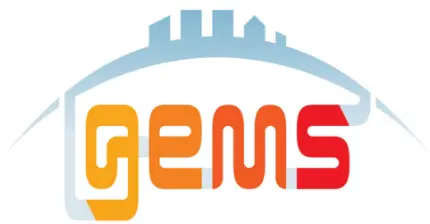
Research
GEMS research and partners
Mine water geothermal energy is an emerging low-carbon energy source. It is being developed in the North East of England, where the large number of former coal mines offers an excellent potential. But a significant number of challenges still exist, e.g. technical (how to best extract this heat, or use mines as heat storage mechanism?), social (are communities or individuals ready to adopt this new way to warm their homes?), economic (is mine water heating affordable for all, and will it attract funders to provide the capital costs?), and regulatory (what policies are in place, how to apply for a new mine water scheme, who owns the heat underground?). Further research is needed to answer these questions, and a team in Durham and the British Geological Survey has been addressing these questions in a collaborative project called “Geothermal Energy from Mines and Solar-Geothermal (GEMS).
GEMS research is subdivided into three Work Packages (WPs):
- on the long-term sustainability of mine geothermal heat extraction
- on Solar-geothermal heat storage
- on the social, economic, and policy aspects of mine water geothermal energy.
Work Packages
Work Package 1
Led by Professor Jeroen Van Hunen and will assess Long-term sustainability of mine water heat extraction : Numerical modelling of mine water flow and heat exchange between the subsurface and mine water will be used to assess whether and under which conditions a mine system can provide long-term heat supply.
Model reliability depends on the accuracy of local mine data, appropriate modelling software, and model calibration with experimental data. This research will apply those models to prospective production sites.
Work Package 2
Led by Dr Zhiwei Ma will assess Solar-geothermal heat storage : This research deals with the technology and logistical measures to ensure MWGH projects meet heating demands.
It will develop innovative solar-geothermal dual storage systems based on a sorption heat pump cycle that utilises 15-20°C mine water to deliver hot water that meets consumer demands.

Work Package 3
Led by Professor Simone Abram will assess: WP3. Political economy and Community to Policy Value of MWGH This research addresses the governance, investment and narratives associated with MWGH, how it can contribute to a ‘just’ energy transition31 through studying its socio-economic value and the impact of government policies. Given the divergent legal and governance frameworks across the UK, WP3 focuses on England and Wales.
Findings will be tested against a detailed study on County Durham as a framework for analysis of regulation, financial structures and public understanding of MWGH, with a comparative case study area in the South Wales former coalfields, where MWGH is being developed.
